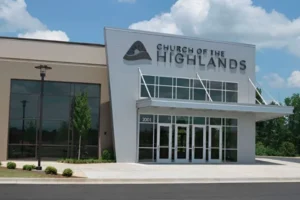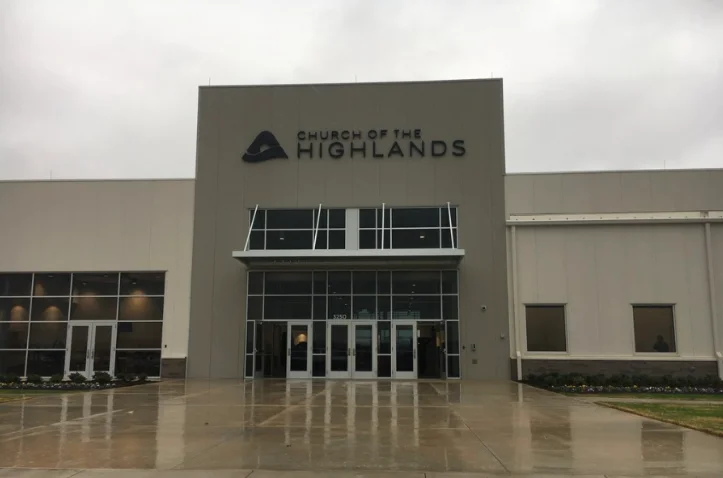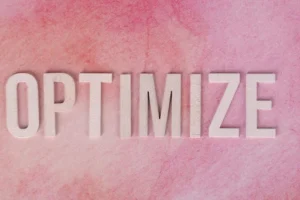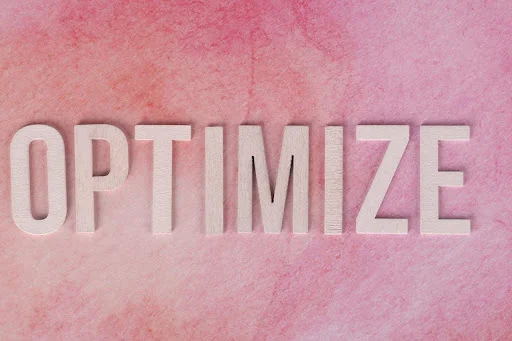The phrase “Church of the Highlands exposed” has reverberated through religious communities, casting a spotlight on one of Alabama’s largest and most influential churches. This article delves into the controversy, unpacking the allegations, the church’s response, the impact on its community, and the lessons learned.
In recent years, the Church of the Highlands, a prominent evangelical megachurch based in Birmingham, Alabama, has found itself embroiled in a series of controversies that have rocked its community and reverberated throughout the religious landscape. From allegations of financial mismanagement to accusations of toxic leadership and ethical breaches, the church’s journey from faith to fiasco has captured widespread attention and scrutiny.
Overview of Church of the Highlands

Founded in 2001 by Pastor Chris Hodges, the Church of the Highlands quickly grew to become one of the largest churches in the United States, boasting over 20 campuses across Alabama and attracting tens of thousands of worshippers weekly. With a mission focused on spreading the message of Jesus and fostering community, the church gained a reputation for its dynamic worship services and extensive outreach programs, including addiction recovery support and disaster relief efforts.
The Genesis of the Controversy
The origins of the controversy surrounding the Church of the Highlands can be traced back to the courageous testimonies of past congregants and staff. These individuals brought to light unsettling practices within the church’s leadership, prompting a broader investigation. As more voices joined the chorus, the community began to scrutinise the church’s adherence to its spiritual and moral obligations.
Key Allegations and Evidence
Financial Mismanagement
Central to the controversy are serious allegations of financial mismanagement. Critics have presented accounts and documentation suggesting a pattern of lavish expenditures benefiting individual leaders rather than the church or its missions. Claims include risky financial ventures and misuse of donations for personal gain, raising questions about the church’s commitment to financial stewardship.
Emotional and Psychological Manipulation
Equally troubling are the claims related to the church’s internal culture. Testimonies describe an environment of coercive tactics and emotional manipulation used to control and influence the congregation and staff. Reports of gaslighting have emerged, creating a toxic atmosphere where individuals doubt their own perceptions and reality.
Sexual Misconduct
The church has also faced allegations of sexual misconduct among its clergy. Notably, Pastor Micahn Carter was accused of sexual assault, which the church initially defended before severing ties due to mounting pressure. Additional lawsuits have accused the church of covering up similar incidents, further damaging its reputation.
Racial Controversies
In 2020, founder Chris Hodges faced backlash for liking racist tweets from Charlie Kirk, a known right-wing pundit. This incident sparked outrage and led to a public apology from Hodges, who acknowledged his actions as wrong and regretful.
Church of the Highlands’ Response
In the wake of these allegations, the Church of the Highlands’ leadership has staunchly defended the church’s integrity. Officials have issued statements denying the accusations, asserting that they are part of a campaign to tarnish the church’s reputation. They have emphasised their commitment to financial responsibility, ethical governance, and the spiritual welfare of their congregation.
Measures Taken
To address the concerns, the church has highlighted its existing accountability measures, including financial audits and oversight by a board of directors. They have expressed openness to dialogue and willingness to engage with concerned parties to resolve the issues raised.
Impact on the Community
The controversy has had a profound impact on the Church of the Highlands’ community. Many followers have experienced confusion and heartache, grappling with their faith and trust in the church’s leadership. This period of introspection has spurred a broader dialogue about the relationship between faith and leadership accountability.
A Call for Transparency
Amid the turmoil, a segment of the congregation is calling for greater transparency and accountability in church operations. There is a desire for independent verification of the church’s claims and a more in-depth investigation into its practices.
Lessons Learned and the Path Forward
The unfolding situation at the Church of the Highlands serves as a critical case study in the importance of transparency, accountability, and ethical leadership within religious organisations. To navigate the path forward, the church must prioritise open dialogue with its community, fostering an environment where concerns can be raised without fear of retribution.
Recommendations for Improvement
- Independent Financial Audits: Conduct thorough financial audits by independent third parties to restore faith in the church’s stewardship of resources.
- Clear Separation of Personal and Church Assets: Establish clear boundaries between personal benefits for leadership and church assets.
- Enhanced Accountability Protocols: Implement enhanced accountability protocols, including thorough background checks and a comprehensive code of conduct for all ministry members.
- Fostering a Culture of Empathy: Shift towards a leadership style that values empathy, compassion, and transparency over control and conformity.
Conclusion
The Church of the Highlands controversy underscores the vital need for transparency and ethical governance in religious organisations. As the church navigates this challenging period, it has the opportunity to redefine its legacy, proving that growth and success need not come at the expense of moral accountability. By embracing these changes, the Church of the Highlands can rebuild trust with its congregation and set a positive precedent for other religious entities facing similar scrutiny.
FAQs
What are the allegations against the Church of the Highlands?
Allegations against the Church of the Highlands include accusations of misconduct among clergy, financial mismanagement, abuse of power within leadership, and fostering a toxic workplace environment.
How has the Church of the Highlands responded to these allegations?
The church responded by addressing specific misconduct cases promptly, implementing long-term measures to prevent similar incidents, and emphasising transparency and accountability.
What steps has the Church of the Highlands taken to prevent future misconduct?
Measures include thorough background checks, enhanced accountability protocols, and a comprehensive code of conduct for all ministry members.
What impact have these allegations had on the church’s reputation?
Allegations have tarnished the church’s reputation, causing concerns among congregants and the wider community about its ethical standards and integrity.
How does the Church of the Highlands plan to rebuild trust moving forward?
The church aims to rebuild trust through ongoing efforts in openness, accountability, and fostering a culture of empathy and compassion among its leadership and congregation.















+ There are no comments
Add yours